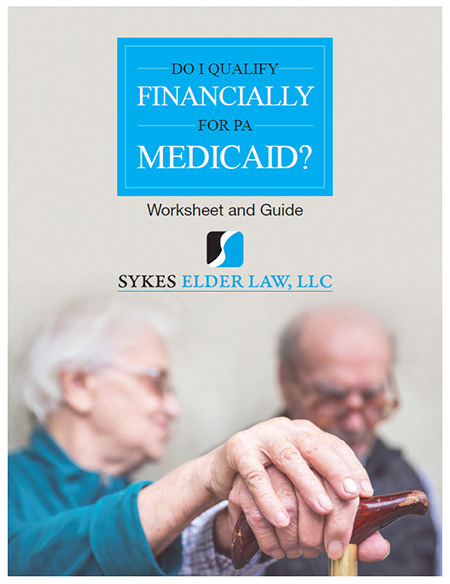That question troubles many older Americans and their families. The question is even more difficult for an older couple who has been residing together in an assisted living facility. In many cases, their combined income has been adequate to pay for the living quarters they’ve shared but their costs triple once one spouse goes to skilled care. Even if they apply for Medicaid, the spouse still in assisted living faces the challenge of paying for the room alone.
As if that weren’t enough, new Medicaid rules passed by Congress last year could make it harder to preserve the financial well being of the spouse of someone applying for Medicaid. Those rules are expected to go into effect in Pennsylvania this month.
There is much more that can be done to help spouses who remain in assisted living.
Income
It’s not unusual for the spouse of a Medicaid applicant (referred to as a “community spouse”) to have only a modest income from Social Security or a pension. Many people are aware Financial help is available for spouses in assisted living facilitiesthat a community spouse is entitled to a Monthly Maintenance Needs Allowance (MMNA) when the husband or wife is on Medicaid. A formula sets the exact amount of a community spouse’s MMNA, which ranges between a minimum of $1,650 per month and a maximum of $2,541 per month. (These figures are adjusted annually.)
What many people don’t know is that in extraordinary circumstances, a community spouse can obtain approval for a MMNA that exceeds the maximum. Such approval requires an appeal and a hearing before an administrative law judge. Once a higher MMNA has been approved, the community spouse must determine where to obtain the money. For example, a woman who is approved for an MMNA of $3,200 per month may receive only $1,200 in income of her own. If her husband is on Medicaid and has an income of at least $2,000 per month, she can get to $3,200 by receiving her husband’s income. But it is often better to see if the spouse can use the couple’s savings to generate income. That way, the additional income will not end, or be reduced, at the death of the Medicaid applicant.
Resources
In addition to an allowance of income, a community spouse also has the right to keep a certain amount of the couple’s combined financial resources. The community spouse can keep resources that are exempt, such as a car, and also half the couple’s combined nonexempt resources up to a maximum of $101,640. (This figure is also adjusted annually.)
Generating more income
Recall the example of a woman in assisted living who is approved to receive $3,200 a month but her own income is only $1,200. Where does she make up the other $2,000 per month? One option is to use the couple’s savings to generate that income. In the new rules being implemented in Pennsylvania, the state will allow a community spouse to use excess savings (that would otherwise be spent down) to purchase an annuity to make up such a gap in income.
By using excess savings to purchase an annuity, the couple may qualify for Medicaid sooner, and the wife can continue to pay her assisted living expenses.
Find the best option
This example is one of many options a couple should explore when considering Medicaid. With the right planning, even a community spouse in assisted living, who has higher than normal living expenses, can make ends meet well into the future. It is best to look at various options, calculate the financial impact, and choose the one that best fits your circumstances and goals.





